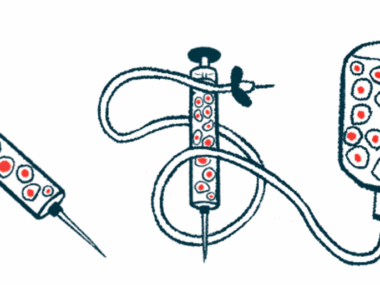‘You Don’t Look Sick’
Written by |

“Invisible” disease: a disease that is not necessarily visible to the human eye; hidden; concealed from others.
Parkinson’s disease (PD) can be known as an “invisible” disease. However, since PD is most commonly characterized by tremors in the extremities and shaking, most people don’t think of it as an invisible disease. But many don’t understand that some people with Parkinson’s don’t actually experience shaking or tremors. Occasionally, these people will tell patients that they are “faking it” or that it “isn’t that bad” because they show no obvious signs of the disease.
I have heard of some PD patients who take over 50 pills a day just to feel “normal.” I can assure you that their “normal” is much different than most everyone else’s. Instead of having obvious tremors in the extremities, a person with PD can experience tremors on the inside, making it even more incomprehensible to someone who doesn’t know much about PD. They might assume one must have external tremors to have the disease. But when I think back to when my symptoms began, I remember feeling as if my insides were shaking like crazy. There was nothing I could do to make it stop.
“But you don’t look sick,” a friend might comment. What does a person with PD look like?
Join the Parkinson’s News Today forums and share your experiences with these kinds of comments.
Well, one can have brown hair and blue eyes, be 40-ish, and have tremors and nothing else. One can have gray hair, 72 years of age, a stooped walk, a shuffling gait, seem a bit confused, and have tremors and more. One can be 28, an athlete, run marathons, and never seem to have a physical problem in the world.
When I went to the World Parkinson’s Congress almost two years ago, I think the thing that struck me most was the diversity of how PD affects people. No two people wear it the same. I have Parkinson’s disease, and you’d think I wouldn’t be surprised by the various differences — but I am.
You’d also think that I wouldn’t have been surprised to hear from several other people with PD say to me, “You don’t look like you have PD.” We ourselves who live with Parkinson’s get stuck on the stereotype of this disease as well.
So, I ask again, “What does a person with PD look like?” Maybe I should ask, “What is a person with PD supposed to look like?”
Most people would undoubtedly bring Michael J. Fox to mind, using him as the “poster child” for a frame of reference. He kept his disease hidden from the public for several years. He didn’t “look like he had Parkinson’s.” He didn’t “look sick.” He didn’t “look that bad.” Maybe he was “faking it.”
“Smile. Life can’t be that bad,” I have heard a couple of people say to me. How do you explain to an absolute stranger that you have a disease that takes away your smile and even though joy may fill you on the inside, you don’t look that way on the outside? How do you explain how bad it can be when your drugs aren’t working well, and you can barely move your back and neck due to the stiffness and pain?
You don’t look “sick” when you are struggling with heart issues, Alzheimer’s disease, a kidney problem, find a lump in your breast, deal with twisted intestines, suffer from hemorrhoids … need I go on? And yet, we can have a bad case of acne, a broken arm, a wound that won’t heal, or a dislocated shoulder, and are not considered sick. Maybe we need to redefine “sick.”
There is a crazy misperception that to be sick, the rest of humanity must have evidence that convinces them you’re not faking it and that your illness just may be worse than they can understand it to be; it may be an illness they cannot necessarily see, and you, as the patient, may not be able to explain it fully just yet. An invisible disease. A disease that may not look like anything to someone else, but if you’ve got it, it’s something indeed.
***
Note: Parkinson’s News Today is strictly a news and information website about the disease. It does not provide medical advice, diagnosis or treatment. This content is not intended to be a substitute for professional medical advice, diagnosis, or treatment. Always seek the advice of your physician or another qualified health provider with any questions you may have regarding a medical condition. Never disregard professional medical advice or delay in seeking it because of something you have read on this website. The opinions expressed in this column are not those of Parkinson’s News Today or its parent company, Bionews Services, and are intended to spark discussion about issues pertaining to Parkinson’s disease.







Paul D Lefebvre
What a great, and perceptive, write. Thank you.
Sherri Woodbridge
Thank you, Paul
George Kapetanakis
Right on Sherri
Sherri Woodbridge
Thank you, George
Danny almada
Sherri,
Your words uplifted me so much. Thank You for such a beautiful outlook.
Sherri Woodbridge
You’re so welcome. That made my day!
Shirley Hall
My insides feel like I am in constant DT’s. It feels like I am constantly vibrating but look fine. People, drs included do not understand.